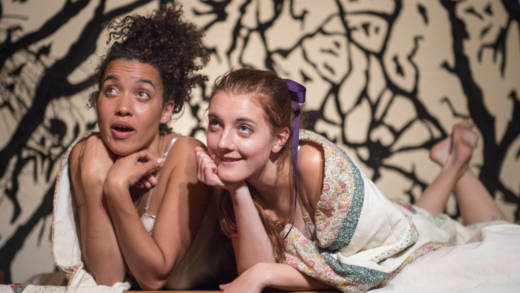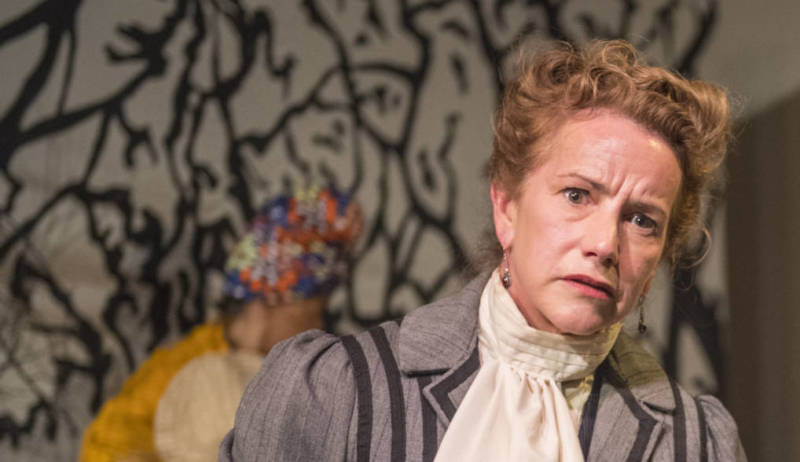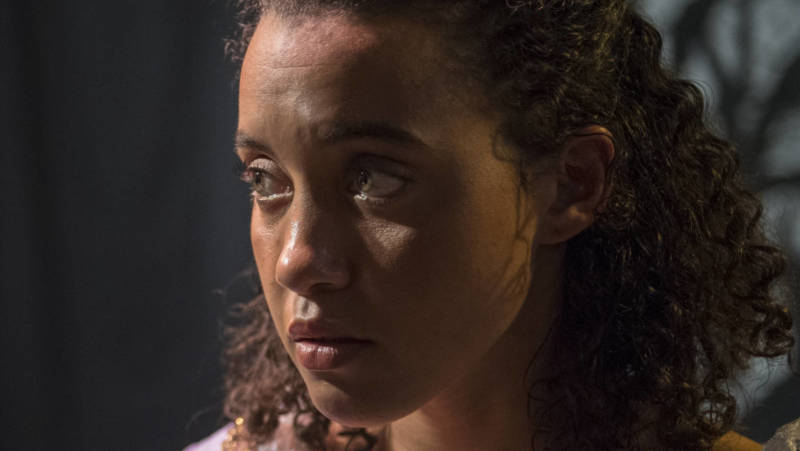America sometimes seems an endless conversation between black and white, as if slavery, the Civil War, the emergence of the Klan, the Civil Rights Movement, the southern strategy, Afrofuturism, and the tiki-torch return of white nationalism were one long dance of opposites. That rigid oppositional framing, though, is shaky, and especially in the face, the hair, and the skin of all Americans who slip between black and white.
And so part of the pleasure of AlterTheater’s bare-bones, well-acted production of Star Finch’s gothic shocker Bondage, ably directed by Elizabeth Carter, is the way Finch catches the destabilizing force of simply being neither black nor white. As William Carlos Williams memorably summed it up, “the pure products of America go crazy.”
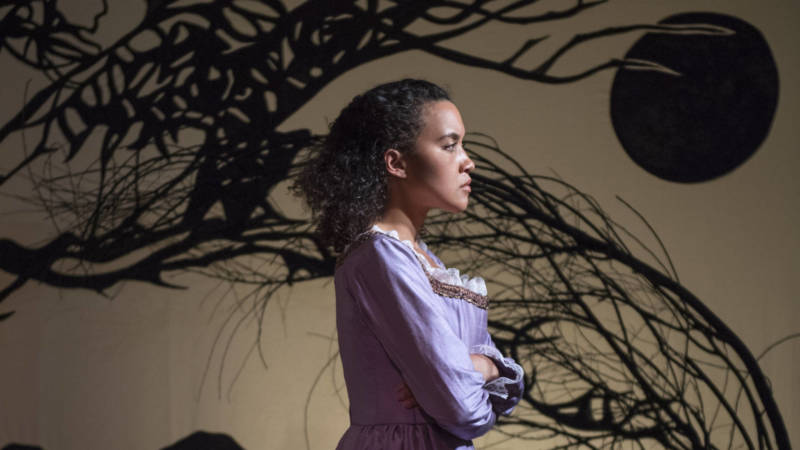
Finch places us in an island nether world some time before the Civil War, and begins with the outlines of a simple tale — 13-year old Emily’s father and aunt are trying to find her a suitable husband, though she would rather play with her cousin, Zuri, a mulatta slave and her handmaiden. The play begins with the cousins staring off at the distant sea. Zuri dances a bit, swaying to music of her own making, and Emily wants that too: to move as her cousin moves.
It’s a canny take on white desire. Zuri can barely understand Emily’s needs or has any inclination to fulfill them — “There’s nothing to teach,” she offhandedly remarks. Yet we know from a thousand movies that it’s supposedly Zuri’s job to teach her white cousin to dance — that’s the trope. It’s a risible notion if there ever were one, but one deeply entrenched in the American psyche. Finch doesn’t so much critique the cliché as makes it inoperable.
One might describe Bondage as an unlearning play. Emily, in what she sees as an act of kindness, wishes she could turn her cousin white; Zuri responds, “But my skin is pale now. How much whiter would you wish me?” In her refusal or inability to understand the world around her, Zuri turns everything into an absurdity. That’s part of the brilliance of the play: you can’t help but see our present world as the inhuman result of the craziness she can’t get her mind around.
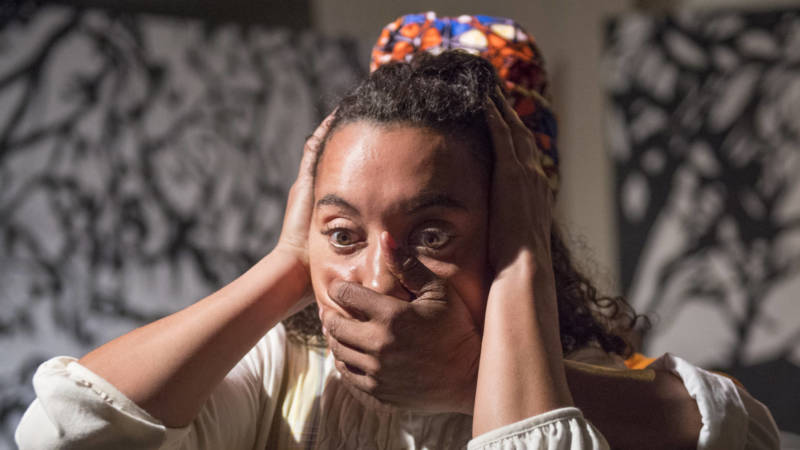
When Emily’s father Phillip looks at Zuri, he’s not only caught in the allure of desires he feels are illicit and enticing — her age (13), her heritage, his daughter’s truest friend — but also a way out of a meaningless life. For him, the indeterminate nature of her race becomes a sign of another way, an escape from limits and the opening up of new possibilities. One of Finch’s slyest jokes in the script is Phillip’s crazy wish to take Zuri to Bombay, where they can be artists together.
